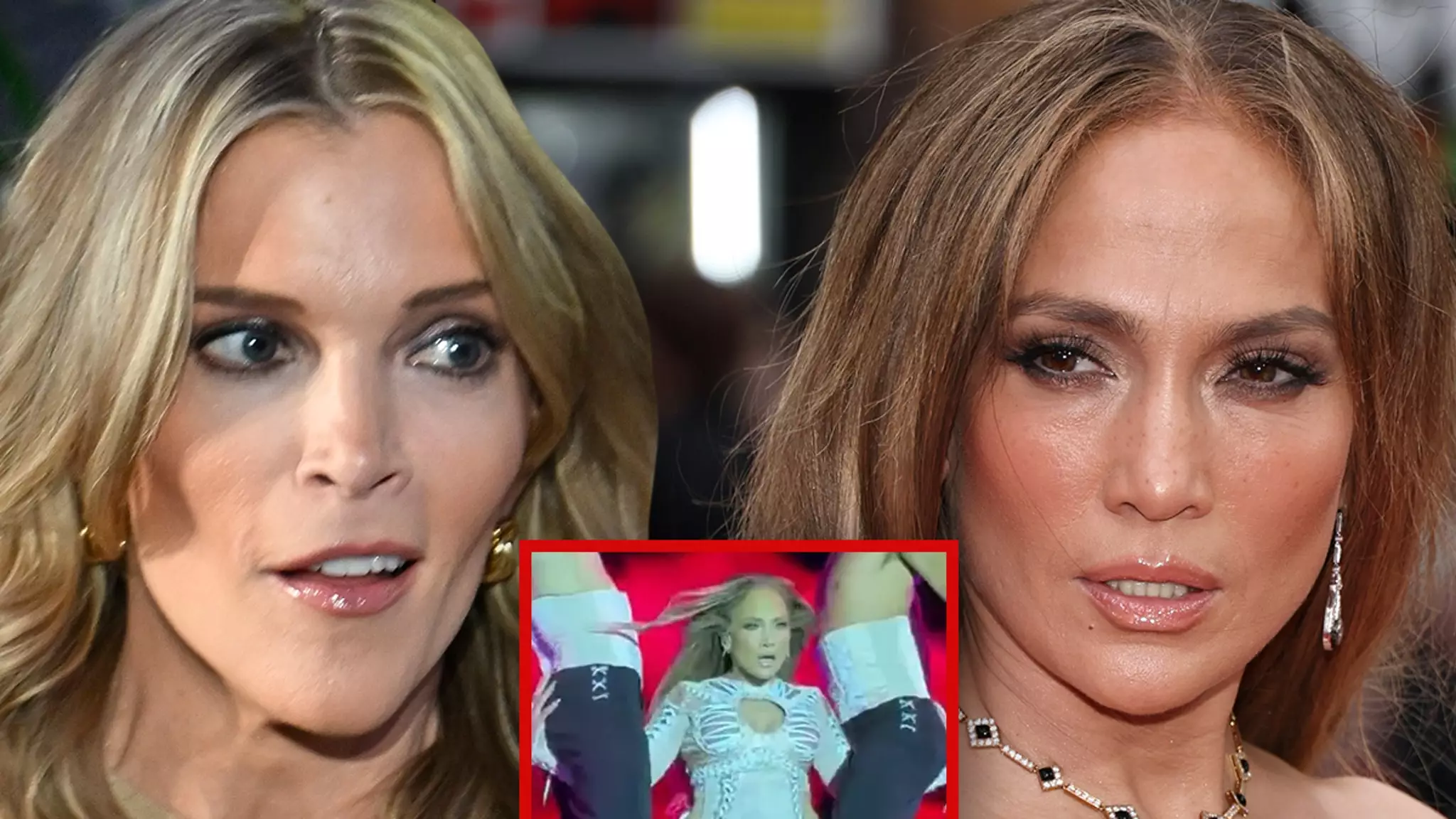In today’s entertainment landscape, the boundaries of self-expression are constantly being pushed and redefined, often sparking fierce debates about decency, artistry, and personal freedom. Jennifer Lopez’s recent dance performance at the Cook Music Festival exemplifies this phenomenon—bold, provocative, and unapologetically daring. She embraced her sexuality fully, choosing to present herself as a confident, empowered artist who refuses to shrink her creativity to fit conventional standards. While critics like Megyn Kelly criticize such displays as overly sexualized or inappropriate, it’s essential to recognize that this form of performance serves a deeper purpose: celebrating autonomy and challenging societal discomfort with female sexuality. Lopez’s moves—crawling on the floor, nearly lipsyncing with a dancer, and engaging in suggestive acts—are not accidental; they are deliberate acts of self-liberation, embodying her identity without fear of judgment. In a cultural climate where female artists often face pressure to conform to sanitized images, Lopez’s authenticity reminds us that genuine self-expression often ruffles feathers but also paves the way for future generations to embrace their true selves.
The Cultural Significance of Sexual Expression in Music
Performers like Jennifer Lopez exemplify a broader shift in the entertainment industry—one that increasingly values raw honesty and the celebration of human sexuality as a natural, powerful force. Critics may dismiss their risqué routines as gratuitous, but when viewed through a critical lens, they serve as a form of empowerment. It’s a rebellion against guilt and shame that society often imposes on women who choose to own their sexuality publicly. Lopez’s performance can be seen as a statement of liberation—a declaration that women, regardless of age or societal expectations, have the right to express themselves fully. This perspective is especially pertinent considering the ageism prevalent in Hollywood and the entertainment industry, which often sidelines women beyond a certain age. Lopez’s confident display acts as a form of resistance, dismantling antiquated notions that sexuality diminishes with age and asserting that empowerment knows no expiration date. Her unapologetic approach sparks important conversations about societal perceptions and encourages viewers to reconsider their assumptions about female sexuality and artistic integrity.
The Power Dynamics of Public Influence and Personal Choice
Despite the criticism from figures like Megyn Kelly, Lopez’s performance underscores the importance of personal choice in artistic expression. It’s a statement that, in a world obsessed with propriety and moderation, there remains space for unfiltered authenticity. Public figures wield significant influence—what they choose to showcase on stage can challenge societal norms and inspire empowerment. Lopez’s willingness to flaunt her sensuality redefines what it means to be a mature woman in the spotlight, breaking stereotypes and opening dialogue about the acceptance of diverse forms of beauty and sexuality. Megyn’s dismissive comment reveals more about societal discomfort than about the performance itself. In contrast, Lopez’s unapologetic display affirms that owning one’s identity—without succumbing to societal expectations—is an act of strength and resilience. Artistic expression, especially when rooted in authenticity, has the potential to shift cultural narratives, empowering individuals to live boldly, regardless of age or social conventions.

